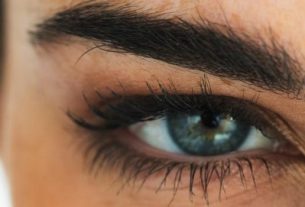Niacinamide is known for its skin health benefits and is a common ingredient in skin care products. Know more!
Niacinamide, also known as nicotinamide or vitamin B3, is a form of vitamin B that plays a crucial role in various biological functions in the human body.
This asset is often recognized for its skin health benefits and is a common ingredient in skin care products. So, are you curious? So stay with us to find out more. Good reading!
What is niacidamide?
Niacinamide, also known as vitamin B3 or nicotinamide, is a form of vitamin B soluble in water. This substance plays essential roles in cellular metabolism, helping to produce energy and repair DNA. Additionally, niacinamide is well known for its antioxidant properties, which help fight oxidative stress in cells.
When we think about skin care, niacinamide stands out due to its dermatological benefits. She demonstrated ability to improve skin texture, reduce the appearance of fine lines and wrinkles, control sebum production and alleviate hyperpigmentation. Its gentle nature makes it suitable for different skin types, including sensitive.
Finally, it is also possible to confirm that niacinamide has anti-inflammatory properties, which may be beneficial in the treatment of acne and rosacea. Your versatile profile makes it a popular ingredient in skin care products, including creams, lotions and serums, are a frequent choice for promoting the health and overall appearance of the skin. Everything we need, right?
What is it for?
Niacinamide is a compound that performs several functions in the skin. Among some of its benefits, this compound helps strengthen the skin barrier, reduce inflammation, control sebum production, and can fade dark spots and even out skin tone. Furthermore, niacinamide has antioxidant properties, helping to protect the skin against damage caused by free radicals.
1. Reduces pigmentation
Niacidamide works by inhibiting the transfer of melanosomes (pigment-containing cells) from melanocytes to keratinocytes, thus helping to reduce melanin production and consequently reducing dark spots and hyperpigmentation. In addition, niacinamide has anti-inflammatory properties that contribute to the overall improvement of the skin’s appearance.
2. Moisturizes
Niacinamide is known for its ability to strengthen the skin barrier, reduce water loss and stimulate the production of ceramides, which greatly contributes to skin hydration. Furthermore, she has anti-inflammatory properties which help keep the skin healthy and hydrated.
3. Slows down aging
As a form of vitamin B3, niacinamide is known for its antioxidant and anti-inflammatory benefits. It helps protect the skin against damage caused by free radicals, reduces inflammation and stimulates collagen production, contributing to firmer and healthier skin. These combined effects can help delay signs of aging, such as wrinkles and fine lines.
4. Reduces sebum production
It also has anti-inflammatory and sebum production regulating properties. It works by inhibiting the activity of the enzyme 5-alpha-reductase, which converts testosterone into dihydrotestosterone (DHT), a hormone associated with increased sebum production. Additionally, niacinamide helps strengthen the skin barrierreducing inflammation and balancing oil production in the skin.
5. Helps reduce sensitivity
It can help reduce skin sensitivity as it acts as an antioxidant, neutralizing free radicals that can contribute to skin irritation. Additionally, niacinamide can strengthen the skin’s barrier, reducing permeability and helping to maintain hydration, which contributes to less sensitive skin.
6. Fights free radicals
Free radicals are unstable atoms or molecules that have unpaired electrons, making them highly reactive. They can damage cells and biological molecules, contributing to processes such as aging and disease.. Oxidative stress, caused by free radicals, can be neutralized by antioxidants in the body.
Therefore, niacidamide fights free radicals due to its antioxidant properties. It helps neutralize free radicals, which are unstable molecules that can damage cells and contribute to premature skin aging. Niacinamide may also help strengthen the skin barrier, providing additional defense against free radical damage.
How to use niacidamide?
How many times can it be used?
And niacinamide can generally be used twice a day, morning and evening, as part of your skin care routine. However, it is always advisable to follow the instructions for the specific product and, if there is any irritation, reduce the frequency of use.
Can you use niacidamide during the day?
Niacinamide can be used during the day. It is generally well tolerated and can offer benefits to the skin, such as reducing dark spots and controlling oil production. Furthermore, it is worth mentioning that it is very important to use an appropriate sunscreen when applying products with niacinamide during the day to enhance the product’s results.
What not to mix with this active ingredient?
According to dermatologist Dr. Monalisa Nunes, niacidamide is a very calm active ingredient, with no negative points when we think about mixing it with other ingredients. However, according to her, mix products with the same functions It can be a waste of time, such as pure niacidamide serum and another type of serum with antioxidant properties.
Can people with sensitive skin use niacidamide?
People with sensitive skin can use niacinamide as it is Known for having calming properties and does not usually cause irritation, perfect and very versatile, right? However, it is always advisable to test a small area of your hand before applying new products to ensure compatibility with your skin.
So, did you like our content? Enjoy and also read: How to delay aging? Tips and new habits
References: Sallve, Vogue,

Sign up for our newsletter and stay up to date with exclusive news
that can transform your routine!
Warning: Undefined array key "title" in /home/storelat/public_html/wp-content/plugins/link-whisper-premium/templates/frontend/related-posts.php on line 12
Warning: Undefined array key "title_tag" in /home/storelat/public_html/wp-content/plugins/link-whisper-premium/templates/frontend/related-posts.php on line 13




